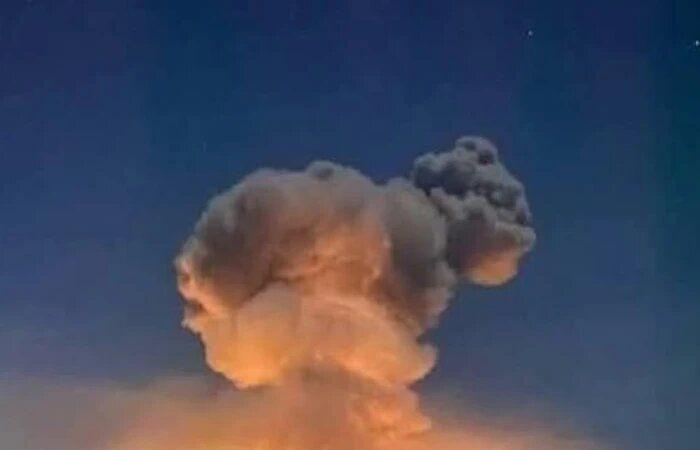Monday morning, the Israeli occupier continued its aggression against Syria, targeting a military site in the Al-Bukamal desert, in the governorate of Deir ez-Zor, in the east of the country, reports the Al Mayadeen website.
An Israeli media source described the Israeli bombings which targeted several sites and munitions depots in the eastern countryside of Tartus at dawn on Monday as “Hiroshima to Tartus”, following the violent strikes and raids.
On land, Israeli forces expanded their invasion into the Quneitra countryside, entering new villages and occupying several others in Daraa governorate, as well as the Beit Jinn and Mughr al-Mir farms, which are part of the suburbs. damask.
Israeli forces are now 15 km from the international road between Damascus and Beirut, they also control the most important fresh water sources in southern Syria, in the Yarmouk basin.
Furthermore, a statement from the Turkish Foreign Ministry accused Israel on Monday of seeking to “expand its borders” with a project aimed at doubling the population of the occupied Golan.
“We strongly condemn Israel’s decision to expand illegal settlements in the Golan Heights occupied since 1967. The decision in question constitutes a new phase in Israel’s goal of expanding its borders through occupation,” the ministry said.
EU diplomatic mission in Damascus
Kallas made remarks to members of the press at the entrance to the first meeting of EU foreign ministers she will chair since taking office.
The first item on the ministers’ agenda will be developments in Syria, she said: “Our highest diplomat in Syria will be in Damascus today.”
“I asked them to go to Damascus and make contact with the new government and the Syrian people,” she said.
Kallas, who recalled that she met, on Saturday, December 14, with actors such as Türkiye, the United States and the United Nations in Jordan, thinks “it is very important that regional and international actors see the situation in the same way and want this country to have a stable and peaceful government.
“Today we will discuss with the foreign ministers the level at which we will interact with the new Syrian leaders,” she said, before noting that the actions of the new Syrian leaders, who succeeded the Ba’athist regime , will be decisive for the measures that the EU takes in the coming weeks.
Aqaba resolutions raise concerns
Syrians said the overthrow of Bashar al-Assad’s regime nullified the effects of Security Council Resolution No. 2254, explaining that the opposition had turned to power and the regime had ended, which means – from their point of view – that the effects of the resolution have ended.
They cautiously highlighted the participation of parties favorable to the old regime, such as the United Arab Emirates, and warned against attempts to circumvent the “victory” won by the factions over the Assad regime.
The Arab Ministerial Liaison Committee meetings concluded with a call for an inclusive Syrian-Syrian political transition process sponsored by the United Nations and the Arab League.





